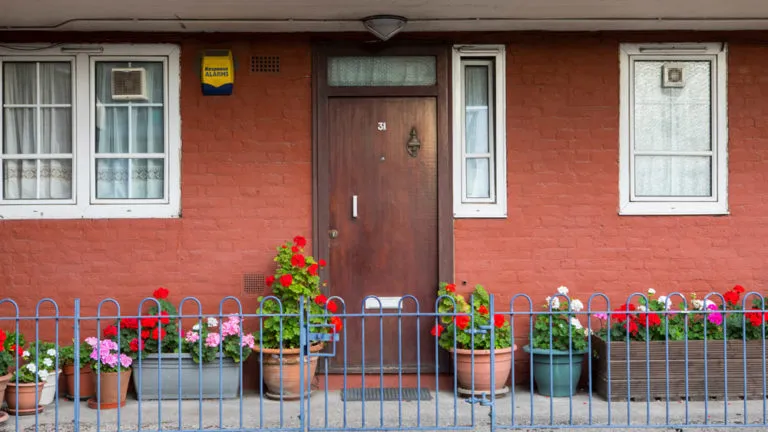No budget means no help for those facing homelessness
Published: by Steph Kleynhans

With the budget on 6 November cancelled, the government have further delayed taking action to lift the benefit freeze and provide stability and certainty for many in need. The benefit freeze has left Local Housing Allowance (LHA), or housing benefit for those renting privately, completely unfit for purpose, and this is pushing many people into debt, poverty, and homelessness. People are struggling to pay their rent because the LHA rate does not cover modest rents in the vast majority of England and this is severely restricting many people’s chances at finding a home.
However, merely ending the freeze in April 2020 is not enough to repair the damage already done. LHA rates must be lifted back up to a reasonable level in all areas as a matter of urgency. This is the only way to ensure that those claiming LHA have a fighting chance of finding a home that’s suitable, affordable, and available. Failure to do so will perpetuate the current dismal situation.
LHA no longer covers decent levels of rent in almost all of the country
In 2011, LHA rates were set to cover the bottom third of rents in all local markets. This level was thought to allow people claiming LHA just enough money to survive in the private rental market.
Over the years, a dangerous cocktail of rent increases, welfare cuts, and the four-year benefit freeze has led to huge shortfalls between rents and rates that continue to grow.
Across all types of households, LHA rates no longer cover the bottom third of rents in 97% of areas in England
As a result, the barriers for families trying to find a home they can afford have too often become impossible to overcome. LHA needs to be set at a level that means low-income families can access a reasonable pool of homes. Currently, they are nowhere near that level.
The LHA rates have fallen so far below rents that in a third of areas in England, they do not even cover 10% of the rental market for two-bedroom homes. In 78% of areas in England, they do not cover the bottom 20%. The odds of a home in your area being within the LHA rates can already be lower than one in five, or even as low as one in ten. Crucially, this is before you even start to look for a two-bedroom home that is actually available to rent.
The pool of homes affordable on LHA that are also available is unreasonably small
Let’s be generous and assume you can find a home that has a potential rental price within the LHA rates of your area. The issue remains that this property may already be occupied and unavailable to let. This leaves the pool of what is both available and affordable even narrower.
When looking at two-bedroom homes advertised on a single day across England, Scotland and Wales, recent research carried out by the Bureau of Investigative Journalism found that just 6% of two-bedroom properties across the whole country were both available and affordable to LHA rate claimants.
This is out of a total of more than 62,000 two-bedroom homes advertised. So, the chance of one of those being where you need it at the right time and no one else beating you to it is incredibly slim. In York there were only seven available two-bedroom homes to rent, in Bristol there were just three and in Ipswich there was nothing available.
Finding a landlord that is willing to let to LHA claimants is also difficult
Let’s assume, though, that you do stumble upon one of the 6% of properties that is in your area, affordable and available. Great, you go ahead and apply but the landlord does not want to let their property to someone claiming LHA. This is not uncommon. Our own survey of private landlords found that 43% of private landlords operate an outright bar on those claiming benefits, and a further 18% say they prefer not to let to this group.
You also want the home to be decent? Yet another barrier
The likelihood of homes being of decent standard is smaller when you’re claiming LHA – too many are happy to just take what they can get, with all the negative impacts that can have. Shelter analysis of the English Housing Survey 2016/17 shows that one in three (33%) renters in receipt of LHA live in non-decent accommodation compared to just over one in five (22%) private renters who do not receive LHA.
The only solution is to raise LHA rates back up to at least the bottom third of rents
We are already in a housing emergency that is only getting worse and the LHA rate freeze is really driving that. LHA rates are now so inadequate they are severely restricting the availability of homes across England. This is driving homelessness as families find it harder and harder to find somewhere suitable and affordable to live.
As a direct result of the severely restricted pool, families often have no choice but to accept homes that are too expensive, too small, or are in poor condition. With so few on offer, families also may have no choice but to accept homes away from employment opportunities and their own support units, stifling their chance to thrive in a secure, affordable home.
The freeze must end as soon as possible. But the only way to ensure the availability of housing is adequate enough for those claiming LHA is by lifting the LHA rates back up so that it covers the bottom 30% of rents. If the government is serious about tackling homelessness in all its forms, it must take action as soon as possible. If it fails, or does anything less, the housing emergency has no prospect of easing.